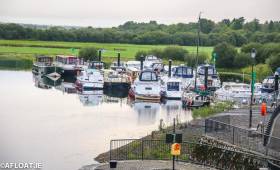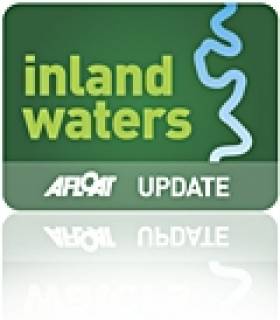Displaying items by tag: Winter Mooring Period
Winter Mooring Period Begins on Ireland's Inland Waterways
The winter mooring period has begun and with it a number of changes to the operation of Waterways Ireland’s moorings.
Winter mooring is available on Waterways Ireland moorings on the River Shannon for the 5 month period 1 November – 31 March for a fee of €63.50. For 2018-2019 bookings visit here
From the 7th November electricity and water to Waterways Ireland jetties, harbours and marinas will be turned off to reduce damage from winter weather including storms and freezing conditions. A Marina Notice will issue when both services are re-connected in 2019.
Over the winter Waterways Ireland advises boat owners to take additional precautions if visiting their vessels during any stormy weather and heavy rainfall. Slippery conditions and strong winds are a hazard when walking on floating pontoons and when moving boats. Certainly boat owners should consider wearing full personal protective equipment if it is deemed necessary to visit a vessel during stormy weather.
Boaters should also note the closure of Albert Lock and Athlone Lock for 6 weeks from the 5th and 12th November respectively for essential maintenance works and passage through the locks will not be possible during this time.
Waterways Ireland will continue to issue Marine Notices throughout the winter period to advise boaters of changes to navigation conditions. Marine Notices are published on the Waterways Ireland website.
Shannon & Shannon-Erne Navigations Winter Mooring Period
Waterways Ireland wishes to advise masters that the winter mooring period for public harbours on the above navigations will commence on 1 Nov 2013 and end on the 31 Mar 2014.
Masters are advised that collection of the associated charge, in arrears, has ceased and are now requested to pay the winter mooring fee of €63. 50 prior to 1 Nov 2013
Masters are further reminded that Bye-law 17. Mooring and Use of Harbours i.e the "5 Day Rule", continues to apply during this period and that masters not wishing to avail of winter mooring should continue to observe the mooring time limits for public harbours.
Payment may be made by cheque, bank draft or postal order, made payable to Waterways Ireland, to the office below. Credit/Debit Card payments may be made by contacting Finance Section, Waterways Ireland, Enniskillen, Tel: 048 6632 3004 (from ROI).
Waterways Ireland thanks its customers for their co-operation.
Charles Lawn
Lt Cdr (rtd)
Inspector of Navigation
The Docks,
Athlone,
Co.Westmeath
+353906494232
16 Sep 2013
Tel: 353 90 6494232
Fax: 353 90 6494147

























































